

One Man, 50 Years, 10,000 Years of History
By EO Book Review Editorial Team
[Cover] p. 19
Original Article: [Chinese]
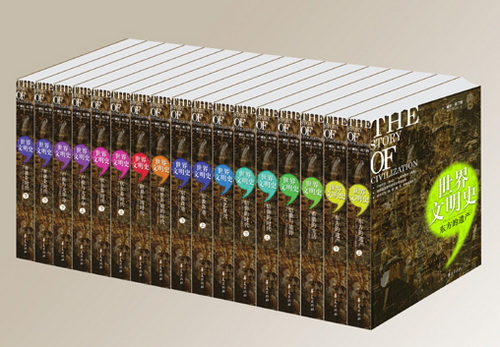
The Story of Civilization (世界文明史)
By Will and Ariel Durant
Simon and Schuster, 1935–1975
Translated by (台湾幼师文化公司)
Huaxia Publishing, July 2010
The Economic Observer's Book Review pays tribute to American writer William James Durant, best remembered for his work The Story of Civilization, a history of the Western world in eleven volumes written in collaboration with his wife Ariel. Born to a Catholic family, he abandoned his early plans to become a priest and turned to socialism in his twenties. He married his wife Ariel, nee Chaya Kaufman, in 1913. Together they embarked on a work that spanned 50 years. The first volume of The Story of Civilization was published in 1935 and the last in 1975. The couple won the Pulitzer for Rousseau and Revolution, the 10th volume in the series, in 1968. Will and Ariel both died in 1981 within 2 weeks of each other. Throughout their life together, the Durants shared that rare combination of a loving marriage and a successful professional collaboration. The Story of Civilization is a beautifully written work that provides an accessible and thoroughly humanist account of Western history.
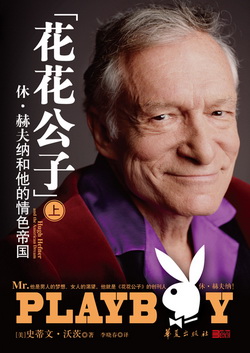 From Playboy to American Hero
From Playboy to American Hero
By Zhang Yange (张衍阁)
[Literature] p. 3
Original Article: [Chinese]
Mr Playboy: Hugh Hefner and the American Dream (花花公子)
By Steven Watts
Wiley, 2008
Translated by Li Xiaochun (李晓春)
Huaxia Publishing, January 2010
Zhang Yange reviews the newly translated Mr. Playboy: Hugh Hefner and the American Dream by Steven Watts. Born in postwar America, Hefner grew up in an average household. His mother originally wanted him to be a preacher. Instead, he built an entertainment empire based on challenging traditional social conventions. He is a self-made man and arguably the modern embodiment of the American Dream. The book gives an account of Hefner's personal and professional life and explores the controversial but liberating impact Playboy has had on American culture.
Also in Literature:
Ou Ge looks at Tang Nuo and Nabokov on reading: Our Habits and Why We Read
Yun Yetui looks at the best loved works of Arthur Miller and his long relationship with China
Zhang Dachun writes about his life of reading and writing
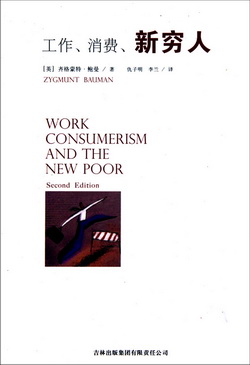 Marx Would Cry if He Read This
Marx Would Cry if He Read This
By Wang Dongdong (王栋栋)
[Academic] p29
Original Article: [Chinese]
Work, Consumerism, and the New Poor (工作、消费、新穷人)
by Zygmunt Bauman
Open University Press, 1998
Translated by Li Lan and Qiu Ziming (李兰/仇子明)
Jilin Publishing Group, June 2010
Wang Dongdong reviews acclaimed Polish scholar and sociologist Zygmunt Bauman's Work, Consumerism, and the New Poor first published in 1998. Drawing upon his neomarxist influences, Bauman's book offers a comprehensive critique of modern consumerist society. He bases his critique around the shift from a production-driven society to a consumer-driven society. To Bauman, the global consumer society has already won; as Adorno and Horkeimer disparagingly wrote, the culture industry offers "something for all, so that none may escape." The poor man of today no longer can band together with others like him because the category of labor is no longer a common point of identification. A poor man is a failed consumer; he is exactly like the rich but only less successful at consuming. Consequently, the poor man is permanently defeated, not only disadvantaged but robbed of a social community and his power to revolt.
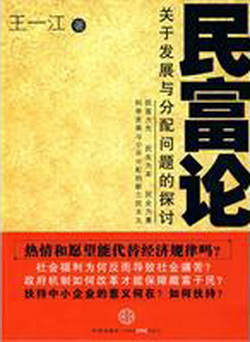 China's Third Hand
China's Third Hand
By Xiao Shu (笑蜀)
[Academic] p31
Original Article: [Chinese text not yet available]
The Wealth of People (民富论)
by Wang Yijiang (王一江)
China Citic Press, June 2010
In the book, Wang Yijiang, professor of economics and human resource management at Cheung Kong Graduate School of Business, evaluates China's wealth management and distribution. Professor Wang rejects the view that it is the responsibility of the central government to run a comprehensive socialized system and welfare state. Currently, the national government controls over 76% of China's wealth and Wang argues that an overflowing national treasury, held at the expense of private wealth, puts Chinese society in a precarious position. The interests of society take a backseat to the interests of national economic development. Professor Wang sees entrepreneurship as the key factor and pins his hopes on the small to mid-sized private businesses that might replace the central government as the driving force of the Chinese economy. He also encourages investment in human capital and expanding the educated middle class.
Also in Academic:
Zhang Xiaojun reviews Zhang Xiaoping's new book (首富长青:刘永行刘永好首富长青)
Zuo Ye looks at Why Europe? The Rise of the West in World History 1500-1850 by Jack A. Goldstone
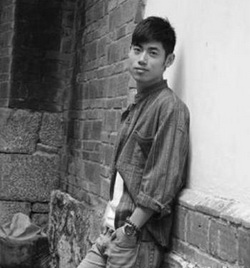 Ge Liang: I Want to Leave an Imprint of Nanjing on the Page
Ge Liang: I Want to Leave an Imprint of Nanjing on the Page
[Dialogue] p. 39
Original Article [Chinese]
Zhuque (朱雀)
By Ge Liang (葛亮)
The Writers Publishing House, August 2010
The Economic Observer interviewed Ge Liang, a young writer from Nanjing who burst into the literary world with his novel Zhuque (朱雀). Ge grew up and attended University in Nanjing and the city serves as the key inspiration for all three of his published novels.
Ge Liang says "The city is always the starting point of my works. I want to tell aspiring authors to begin writing with what you are most passionate about. I'm not saying I won't write about anything else in the future. But for now, I want to express in my works what is closest to me in my life at this moment."
"As cities modernize, become more commercial and industrial, it makes you feel more and more alone. An old city has its own unique character. But after modernization and commercialization, after every city undergoes the same process, you find that they all have the same face."
"Nanjing's history is a blur, because there is too much of it, and it is everywhere in the city. To the point where I want to use the word 'incomprehensible (蒙昧)'"
On writing about history, Ge Liang adds "When you truly understand something, with the plot already developed, you become a person from that time period, so there is a sense of freedom. You don't have to think about whether or not the character fits historically, only whether he is successfully realized in the context of the story."
In the interview, Ge Liang discusses his experiences in growing up in Nanjing, studying in Hong Kong, his writing process and literary inspiration, as well as what he hopes to accomplish in the future.
Links and Sources
EO's Book Review: Official Site
Douban: EO\'s Book Review
Douban: October Issue Contents
Economic Observer: September Issue of EO\'s Book Review

